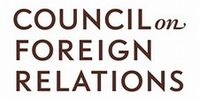http://www.cfr.org/world-bank/does-kim-signal-world-bank-changes/p27994
Authors: Oliver Stuenkel, Assistant Professor of International Relations at the Getulio Vargas Foundation in Sao Paulo, Brazil Sook Jong Lee, President of East Asia Institute Daniel Bradlow, SARCHI Professor of International Development Law and African Economic Relations at the University of Pretoria, South Africa Stewart M. Patrick, Senior Fellow and Director of the International Institutions and Global Governance Program
The selection of Jim Yong Kim, the U.S. candidate, as the next president of the World Bank has stimulated debate over reform of the institution’s governance. Four experts size up the succession process, some judging it a missed opportunity for meaningful change while others seeing a crucial injection of new expertise at the sixty-eight-year-old development body.
CFR’s Stewart Patrick notes a flawed process that still marks a turning point for the Bank. Oliver Stuenkel of the Getúlio Vargas Foundation in Brazil laments the failure of the emerging powers to rally around Nigeria’s Ngozi Okonjo-Iweala. Both Stuenkel and Daniel Bradlow of the University of Pretoria in South Africa warn that without reform at the World Bank, some of its largest borrowers could seek alternatives, such as the proposed BRICS bank. But the East Asia Institute’s Sook Jong Lee welcomes Kim’s selection, saying his public health background bodes well for tackling the complex problems of development work.
Oliver Stuenkel, Assistant Professor of International Relations at the Getulio Vargas Foundation in Sao Paulo, Brazil
Given the voting structure in the World Bank, Jim Yong Kim’s selection had been widely expected. Despite receiving endorsements from a series of leading World Bank officials, Western and non-Western newspapers, and leading academics, Ngozi Okonjo-Iweala never came close to weakening the developed world’s support for the U.S. candidate. Still, from Brazil’s point of view, seeing Kim easily beat Okonjo-Iweala was a disappointment as it underscores the emerging powers’ continued inability to find a common denominator–something many regard as a necessary step toward challenging the West’s control over global discourse.
“We will take a position together with the BRICS, making a common choice,” Brazil’s Minister of Finance Guido Mantega announced last week, raising hopes that the Nigerian candidate would win broad support among developing countries and emerging powers. Such a move could have, in theory, convinced some European countries that it was time to honor Western rhetoric about an “open and merit-based selection process” and end the anachronistic gentleman’s agreement where only U.S. citizens can lead the Bank.
Yet only a bit later, the Russian government declared its support for Kim, a decision uncoordinated with the other BRICS. Given that the Nigerian candidate was widely seen as better qualified, the BRICS–a grouping high on the Brazilian government’s agenda–thus missed a unique opportunity to show unity and respond to critics who argue that they are too disparate to speak with a common voice.
By imposing its candidate, the United States missed a chance to boost the World Bank’s legitimacy among emerging powers, like Brazil, who believe the Bank’s governance no longer reflects today’s global distribution of power. The decision is therefore likely to strengthen those who seek to create alternative institutions such as the BRICS Development Bank, a much-debated topic during the most recent BRICS summit in New Delhi.
The West’s control of the World Bank presidency, however, is unlikely to last. Kim is likely to be the last World Bank president pushed through by the United States, as voting power within both the Bank and the IMF slowly but inevitably shifts toward emerging powers. Okonjo-Iweala may still become the first person from the developing world to head the institution, but it seems she’ll at least have to wait until 2017.
Read more: http://www.cfr.org/world-bank/does-kim-signal-world-bank-changes/p27994
Read also:
Book review: “Theories of International Politics and Zombies” by Daniel W. Drezner
Book review: “The Dragon’s Gift: The Real Story of China in Africa” by Deborah Brautigam
Book review: “How to Run the World: Charting a Course to the next Renaissance” by Parag Khanna









